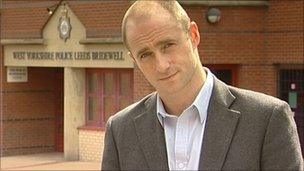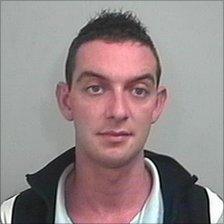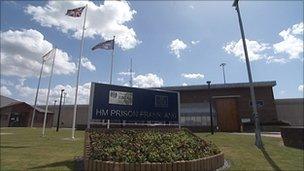Colin Norris case: 'I investigated with an open mind'
- Published

Mark Daly started investigating the Colin Norris case five months ago
I have investigated miscarriage of justice cases before, but never when the prisoner claiming innocence is a convicted serial killer.
For that and many other reasons, the case of Colin Norris is at once fascinating and deeply troubling.
Here is a male nurse, bright and with no history of violence, accused of a six-month murdering rampage. He was convicted of poisoning with insulin five frail, elderly patients in his care in hospital.
He was predictably dubbed the "Angel of Death" and got 30 years in 2008. Few would shed any tears for such a monster.
'Cherry-picking evidence'
However, if one of the central scientific assumptions which underpin the whole case is flawed - which is what my BBC investigation alleges - then we are potentially looking at one of the worst miscarriage cases in recent history.
Our programme team listened to more than a dozen hours of police interviews and read through 35 boxes of evidence. We spoke to witnesses, and to former colleagues of Norris's. Few believed him capable of these crimes.

Colin Norris had no previous convictions, or any history of violence
On 20 November 2001, Norris had told colleagues he thought one of his patients, Ethel Hall, would not last the night. Common staff parlance, according to nurses we spoke to.
But that night she suffered an unexplained hypoglycaemic episode (extreme low blood sugar) which led to her death three weeks later. A blood test appeared to show high levels of insulin. Colin was immediately in the frame.
West Yorkshire Police started working backwards, and produced another four cases, where the women involved suffered unexplained hypoglycaemic episodes. They had all been hitherto certified as having natural deaths but now police had learned Colin Norris had been on shift for each incident, they were being treated as murders.
This was on the basis that unexplained hypoglycaemias were believed to be so rare, that a cluster of five within six months was so suspicious, it must mean foul play.
The new scientific evidence revealed in our programme seriously undermines that case.
Professor Vincent Marks, the world's most experienced insulin expert, found that up to 10% of elderly sick in hospital suffer this condition - meaning it is not that rare at all. He believes Norris's convictions are unsafe.
Additionally, the film features concerns over the insulin test on Ethel Hall.

Colin Norris is serving his 30-year sentence in Frankland Prison
Despite Norris's five convictions, it could be that none of the women involved in this case were murdered.
Digging through the boxes of files, we also found evidence over the way Norris's alleged victims had been selected. We learned claims that police had told one family their relative's death was suspicious and Norris was in the frame. The family were later told the death was no longer suspicious, because police discovered Norris was not working that night.
Lawyers accuse the police of focusing their investigation too narrowly on Norris and cherry-picking evidence. The police, for their part, are sure the right man is in prison.
An application for a fresh appeal, based on the new evidence revealed in our film will be submitted to the Criminal Cases Review Commission.
I began investigating this case five months ago with an open mind, and would have dropped it if the evidence didn't stack up. And I believe given the new evidence, that this is a case which needs to be looked at again.
Hospital Serial Killer: A Jury In The Dark will be broadcast on BBC1 Scotland on Tuesday 4 October, at 22:35 and on the iPlayer.
- Published4 October 2011
- Published4 October 2011